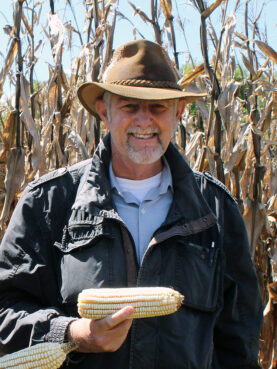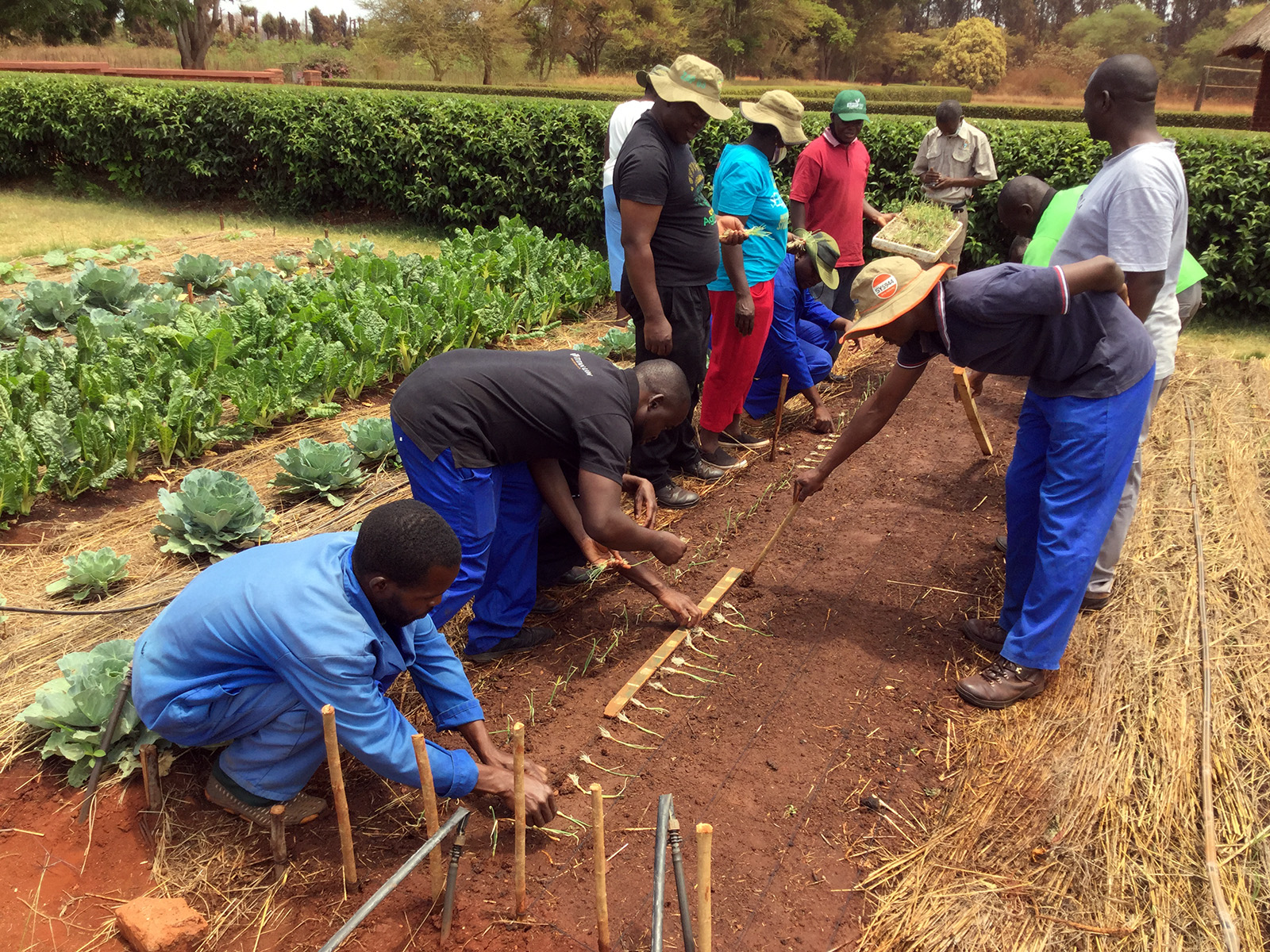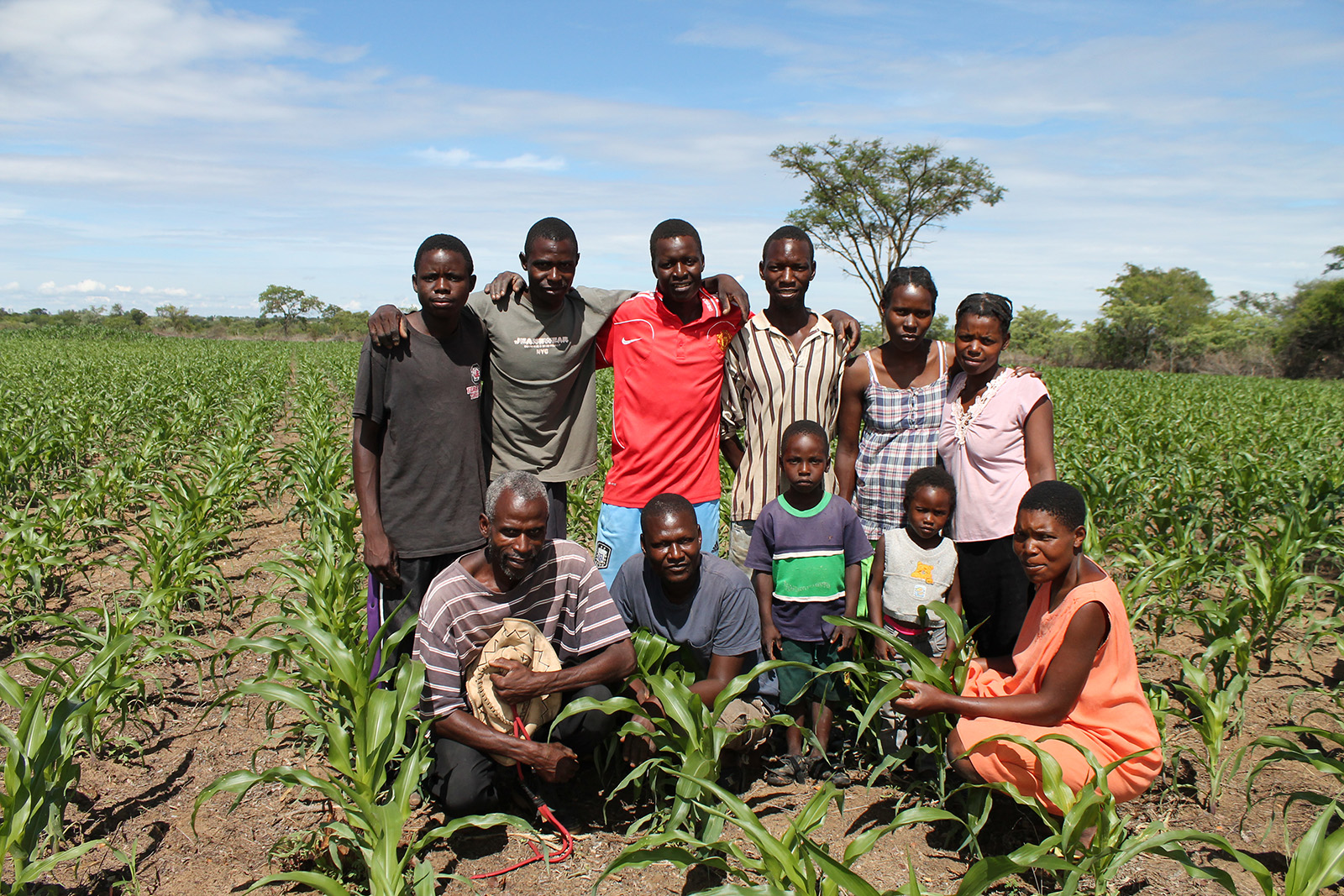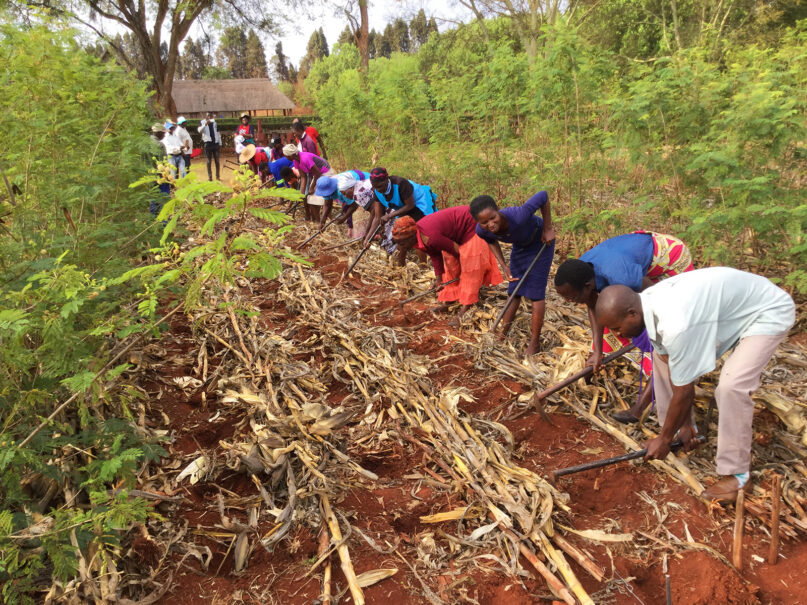(RNS) — When farmer Craig Deall first caught wind of Brian Oldreive’s no-plowing approach to farming in the 1980s, he dismissed it as lunacy. But the results were undeniable.
“Seeing is believing,” said Deall of Oldreive’s Zimbabwean farm. “He held the national corn yield record for this country for over 20 years.”
Four decades later, Deall and Oldreive have partnered as CEO and founder of Foundations for Farming, a Christian nonprofit that promotes an unconventional, eco-friendly farming method — which they call God’s way of farming — now being used in more than 40 countries.
The approach is called pfumvudza, a Shona word that means “new beginnings.” It involves planting crops in mulch beds and was endorsed by the Zimbabwean government in 2020. Since then, pfumvudza has been implemented by more than 1.6 million small farmers in the country. Thanks in part to the new methods, Zimbabwe is experiencing its first food surplus in two decades.

Craig Deall. Photo courtesy of Foundations for Farming
“What we’ve done is not revolutionary,” said Deall. “It’s going back to how things grow naturally in creation. That’s what makes it so exciting, and what makes it easy. Small-scale farmers need nothing more than a simple hoe, and they can be the best farmers in the world.”
In September, Deall became the first recipient of the Christian Economic Forum’s Extraordinary Impact Award for his role in revolutionizing agriculture in Zimbabwe and around the world. “I’m just a small part of the whole organization,” said Deall. “I want to give all recognition to God, and to the ones that don’t get recognized, the ones we teach in the field. They are the real beneficiaries.” The Christian Economic Forum is an international platform that aims to address global challenges by promoting collaboration of Christian leaders.
In addition to promoting a zero-tillage farming technique, Foundations for Farming teaches farmers four management principles: completing tasks on time, at high standard, without waste and with joy. The comprehensive method also equips farmers to care for their families and tend to their finances, all infused with a Christian perspective.
“It’s actually not about the agriculture, it’s about the heart,” said Deall. “Foundations for Farming teaches holistically and uses agriculture as an entry point for the gospel.”
The faith-filled approach has appealed to many Zimbabwean farmers. Makesure Muchengie, who lives in Kanyaga in the Mashonaland West province and used to make a living as a gold panner, credits Foundations for Farming with introducing him to Christianity and giving his life purpose.
“We were taught to be faithful with the things God gave us,” said Muchengie. “I asked myself what God had given us, and that was land, air, running water, the blanket of fallen leaves and grass.”

Foundations for Farming trainers teach students about vegetable planting at the Zimbabwe Stewardship Centre in Harare, Zimbabwe, in November 2020. Photo courtesy of Foundations for Farming
Muchengie said the Foundations for Farming approach proved an almost immediate success and brought visitors from 65 kilometers away to view his thriving crops. Today, Muchengie teaches the principles to the surrounding community, and his wife employs the techniques to teach preschoolers in the garden of her at-home preschool.
RELATED: Pray.com supports family farms hit by historic droughts
Foundations for Farming calls its approach “God’s way” because it mimics how plants grow in creation and allows farmers to steward the land environmentally. “From a climate point of view and from a farming point of view, there’s a big cost involved with plowing, and it’s absolutely unnecessary,” said Deall.
Plowing, he argues, disturbs the equilibrium of the soil, which in its natural state has oxygen-friendly organisms near the top and anaerobic organisms below. It also releases carbon that would otherwise be sequestered in the soil and, through mulching, helps retain topsoil, he said. Fifty percent of the earth’s topsoil has disappeared from the planet over the last 150 years.
Patience Denga, head of the agricultural department at Chaminuka College in Mashonaland Central province, has seen the difference firsthand.
“At the college, we were doing conventional agricultural methods only, but there was erosion,” said Denga, whose fertilized crops weren’t having much success. “Foundations for Farming showed me not to plow, but to use the method of mulching.”

Beneficiaries of Foundations for Farming’s I Was Hungry program in Zimbabwe in 2016. Photo courtesy of Foundations for Farming
RELATED: Nuns in Africa create social enterprise startups to help communities
Denga says the new approach has drastically improved her school’s farm. Encouraged by the increased yield, she has since worked to train her students and the surrounding community in what she’s learned, and nearly 1,000 people have learned the farming methods as a result.
“We are grateful to Foundations for Farming for what they taught us. We are seeing the results on the ground,” said Denga. “Through pfumvudza, you can get something to feed your family for the whole year.”
Looking ahead, Deall hopes the farming principles will continue to spread in places such as Asia, South America and Europe.
“It’s been an incredible journey,” said Deall. “It’s testimony of what God can do, when we are faithful and we are obedient to his call.”





